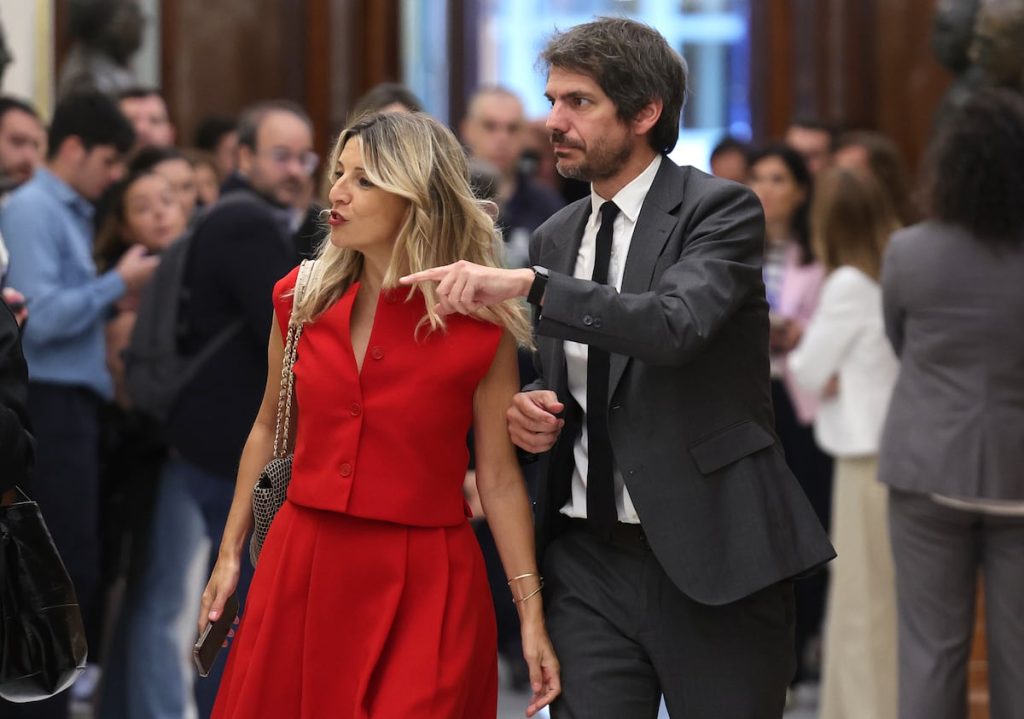Sumar begins this Thursday the debate on the future of the party, prompted by Yolanda Díaz stepping aside after the poor election results. It is expected that the coordinating group of the party will appoint a kind of temporary management board with a set deadline and tasks to lead the organization in the coming weeks or months. The announcement on Monday by the vice president, who leaves only the party leadership but will continue within the executive committee, and essentially continue to act as the leader by maintaining her position in the government and as the head of the parliamentary group, forces the left to a new reconfiguration just two and a half months after Sumar’s first assembly.
Sources within the organization suggest that from the meeting to be held in the afternoon, a group of people – not just one profile – will likely be chosen to lead the party until the internal situation is resolved and to chart the roadmap to reconnect with an electorate that has significantly diminished in less than a year. Nearly two thirds of those who supported Díaz’s party in the general elections (12.33%) chose a different option in the European elections on Sunday (4.65%). “Yolanda Díaz is not leaving. Yolanda Díaz has made good politics,” she explained her decision from Geneva on Tuesday, justifying in a way that she was taking responsibility for the poor election results and facilitating the debate on the future of her political force and its relationship with the rest of the coalition parties.
On Sunday, organizations like Izquierda Unida and Más Madrid were very critical of the vice president’s team for the decisions made during the campaign, which relegated both parties to the fourth and fifth positions on the ballot. Different voices within the group believe that Díaz has shielded herself from the criticisms of other parties but still doubt that she will relinquish control. In practice, she remains the leader in the government and a political reference for Sumar, although some parties have already demanded a new coalition model where theirs is just one among many, and where decision-making can be much more “horizontal”.
In an attempt to present an image of stability, the Minister of Labor arrived early on Wednesday for the Government’s parliamentary session in Congress, accompanied by the other four ministers from the group: Ernest Urtasun, Mónica García, Pablo Bustinduy, and Sira Rego. During the session, Díaz and Urtasun, who is also a spokesperson for Sumar, met in one of the rooms adjacent to the chamber under the watchful eye of journalists, photographers, and television cameras. The parliamentary spokesperson and responsible for Speech, Íñigo Errejón, later joined the meeting, and then the vice president spoke with Enrique Santiago, the leader of the PCE and a deputy of IU.
Leaders within the space acknowledge that little is known about the next steps for Sumar, how long this transitional period will last, or where it will lead. Díaz is not leaving the party (as she emphasized on Tuesday after the uproar caused by her announcement), but she is stepping down from the coordination role, a move that could be a sign of a bicameral model like those practiced by the PNV and Compromís, where organizational positions do not hold any other institutional responsibility. However, all parties advocate for a new coalition formula that gives more weight to the other parties with territorial roots. Sumar is open to a dialogue with them, as demanded by Más Madrid earlier this week and as IU has been requesting for over a year. But first, it must resolve its own internal leadership, although they may not bet on a profile with great public projection because Díaz will remain the reference point.


